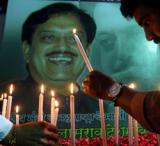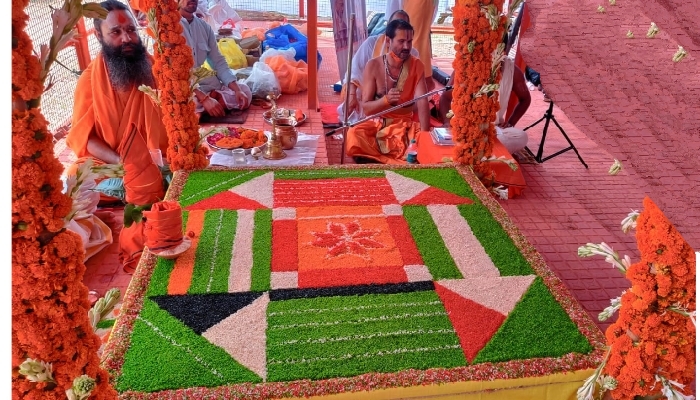
Latur, August 15: The body of union minister Vilasrao Desmukh, who died in Chennai Tuesday, was brought to his home district here in Maharashtra by a special flight Wednesday morning, a party official said. His funeral will be held in the evening.
A huge crowd waited outside the airport as family members, associates and friends of the former Maharashtra chief minister accompanied his body from Latur airport to Dayanand School in the city.
The body will be kept there till 2 p.m. to allow people to pay their last respects.
Later it will be taken to Deshmukh's native Babhalgaon village where it will be kept for an hour at his ancestral home.
Weeping supporters, friends, farmers and villagers of Latur and surrounding districts queued up outside the Dayanand School to catch his last glimpse.
Deshmukh's last rites will be conducted after 4 p.m. with full state honours.
He died of a cardiac arrest following multiple organ failure in Chennai's Global Hospital at 1.40 p.m. Tuesday.
Among those expected to attend his funeral are Prime Minister Manmohan Singh, Congress chief Sonia Gandhi, Home Minister Sushilkumar Shinde, Maharashtra Chief Minister Prithviraj Chavan and other central and state ministers.
Bharatiya Janata Party chief Nitin Gadkari, Maharashtra Navnirman Sena chief Raj Thackeray and other opposition leaders will also be present.
Congress workers expect over half a million people to join the funeral in the evening.
Born in Babhalgaon, Deshmukh was elected village headman (sarpanch) and later went on to become the state chief minister and a union minister, before his death at the age of 67.





Comments
Add new comment